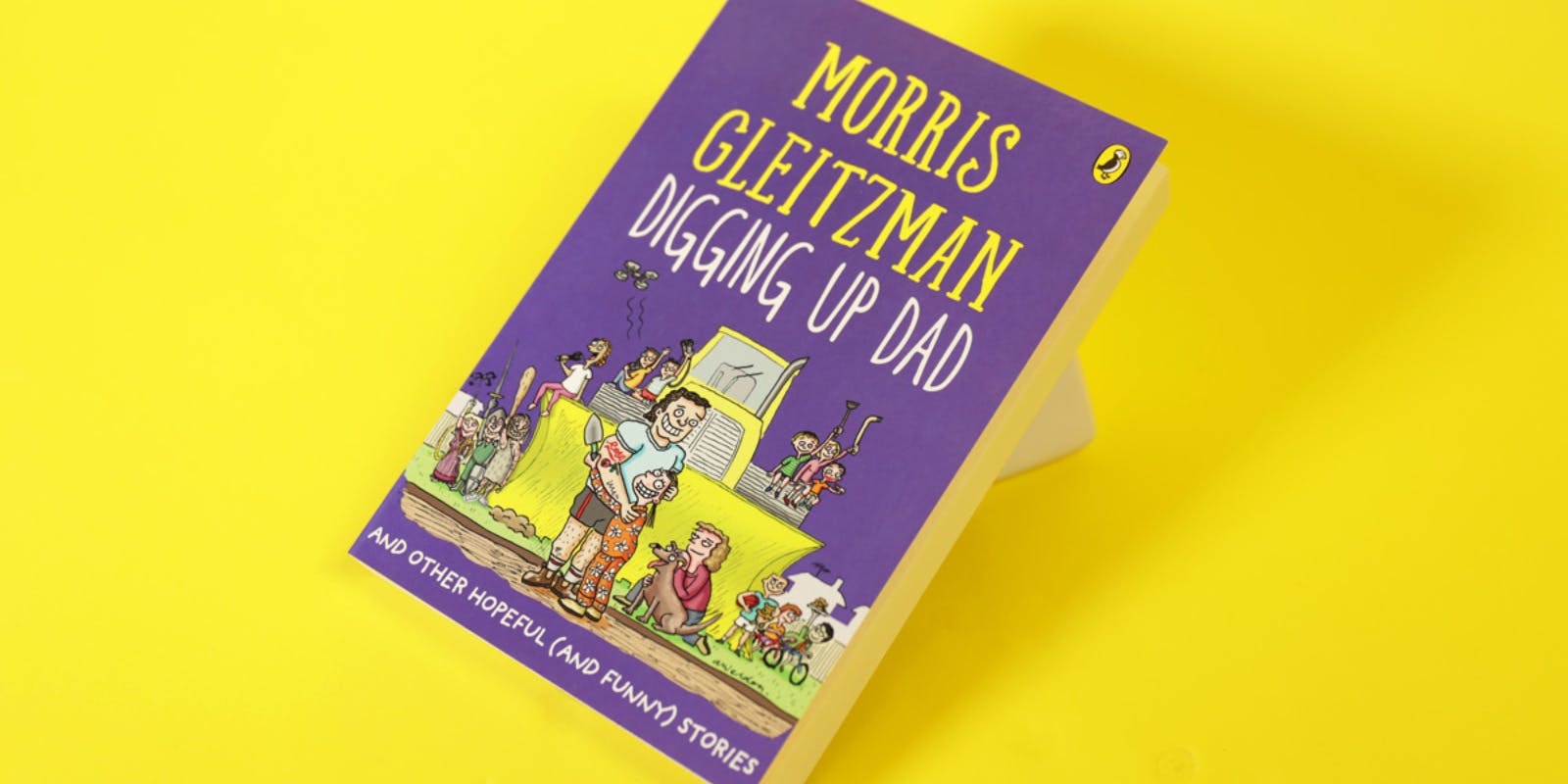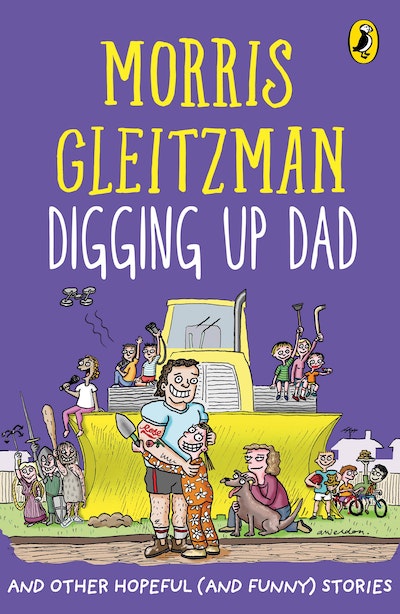We spoke to Morris Gleitzman to learn about inspiration, humour and his new book, Digging Up Dad which comes out on 18 October 2022.
Where did you get the ideas for the stories in Digging Up Dad?
They just sort of slowly came to me, thanks to a creative technique that has served me well over the years. The one where you make slow circular meditative movements with a sponge in a sink full of dirty dishes and let your mind wander.
While I was waiting for the burnt bits to soften, I found myself thinking about how everyone’s problems seem to be a bit bigger these days. And more complicated. And harder to fix. And when I say everyone, I'm including the planet that lets us park our cars on it.
I also found myself thinking how a lot of us grown-ups aren't feeling as confident as we used to about making things better. And how young people are probably noticing this. And perhaps wondering if they might be able to do a bit of making things better themselves. Not just in their own lives, but also in the lives of their families, pets, teachers, neighbours, local shopkeepers, members of parliament etc.
Which got me hoping I could meet a few kids like that in my imagination. And then, when they found they'd got a mate with a laptop and a big sink, they might feel hopeful enough themselves to have a crack at it. And along the way, even if they hadn't planned it, inspire us grown-ups to be our best selves too. In somewhere between three and seven thousand words with not too many adverbs.
The stories in Digging Up Dad have certainly made me feel more hopeful, which is why I put the word in the extra bit of the title. I also did it to remind young readers that if they come across a grown-up who’s not having a very hopeful day, sharing stories with them might just help.
How do you incorporate humour into serious subjects?
Stories are always about characters struggling with problems. So as their author you want to equip them with as many believable personal strengths and qualities as possible. Especially when the characters are young.
Empathy, bravery, optimism, resilience, creative thinking, the capacity for loyal and loving friendships, the ability to stay up much later than adults think they can - you can make your own list. If young characters can start out with at least some of these, the problem-solving journey helps them develop even more.
It's never easy for young characters - bombarded with new experiences, out of their depth, desperate sometimes - so they often use what they've got in unconventional and not always parentally-permitted ways. And this is where humour often comes in.
But, an important note. No matter how much humour there is on the page, every story is a serious story. Even if at first glance it doesn't seem like it. Even if you don't stop chuckling from start to finish. And that includes the stories in Digging Up Dad.
I would like to point out, though, that no swimming-pool swamp weed, flared stretch leotards, federal politicians, nervous speed bumps, giant sloths, lumps of toe fluff, rugby-playing wheelie bins, real estate agents' teeth, scary removalist trucks, very naughty year six dance and drama groups or bouncy bouncy settees were hurt in the writing of this book.
What inspired you to start writing?
My secret friends. As a young kid, like most young kids, I spent countless hours with secret friends in my imagination having unsupervised adventures. In year five, when we had to start writing stories, I realised I already had everything I needed. And I still do. Thanks, secret friends. Sorry about you not being so secret anymore. (Actually, they don't mind. I know they don't because their publicists tell me.)
How do you know what types of stories people want to read?
It's actually quite easy. Because there's only one type of story. Character, problem, laughter, tears, physical journey to try to solve or survive the problem, emotional journey so we can all share the experience. The rest is packaging. And while packaging can be fun, every teacher knows you can't keep a class transfixed and facing the front for an hour just with packaging.
If you could choose just one, what is the main message you'd want young readers to take away from Digging Up Dad?
Sorry to be unhelpful, but there aren't any messages in Digging Up Dad. Stories aren't allowed to have messages. It's illegal under the Federal Telecommunications Licencing Act. Stories are only allowed to have richly immersive visual and emotional components that remain inert until they enter the infinite realm of the reader's imagination and there come gloriously alive. Sorry.
Want to check it out? Read an extract of Digging Up Dad.













